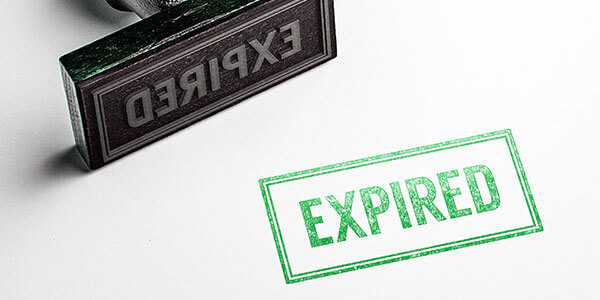
One of the off-putting things about professional insurance is jargon. It’s everywhere.
Take professional indemnity insurance (PI), for example. Among its many important features is the fact it’s a claims-made policy rather than a claims-occurring policy.
Unfamiliar phrases, certainly. But to understand these words is to understand an essential part of your cover.
What does 'claims made' mean?
For a negligence claim against you to be covered, your professional indemnity insurance has to be in force at two points:
- when you did the work, and
- when a claim about it is made.
PI is mostly concerned with work you’ve already done, as that’s where the majority of claims come from. You can't be sued for a mistake you haven't made yet - and it can take months or even years for problems to arise.
Medical malpractice (AKA treatment liability) insurance is also 'claims made'. Problems with beauty and aesthetics treatments can make themselves known a long time after they've been carried out.
This brings us to the really important bit: your PI insurance only covers you for as long as your policy is up and running.
Let’s say you cancel your cover as soon as you finish a contract. Or you stop offering a certain type of beauty treatment and remove it from your policy straight away. If there’s a claim against you, say, two days or weeks after that, it won’t be covered – even if it relates to work you did when the policy was in place.
That’s an eyebrow-raiser for sure, and a common misunderstanding. It’s easy to assume that because you bought and paid for insurance at the time you did the work, any problems with it are covered even after you cancel the policy. That’s not the case.
If you want to make sure you’re still covered, you need to keep your insurance running. This is often a tricky one to weigh up – it could mean paying for cover for years after work has been completed. Or even after you’ve ceased trading or retired.
What's the difference between 'claims made' and 'claims occurring' insurance?
Public liability insurance and employers’ liability insurance are both claims-occurring policies and work somewhat differently from professional indemnity insurance.
As with professional indemnity, for a claim under one of these policies to be covered, the insurance has to be in force at the time of the incident. Simple enough.
However, it’s the insurer at the time of the incident that covers it, regardless of when the claim is made.
The obvious difference here is that, unlike claims-made policies, claims-occurring policies still cover you even after your policy is cancelled.
Clear as...
So, there we go. That should have made things a little clearer for you. However, we haven’t covered everything to do with the nuts and bolts of professional indemnity insurance here.
We still need to talk about things like retroactive cover and run-off cover, both of which help you extend your cover. You can get a head-start by clicking on the links to read more. Or call us on 0345 222 5391 with your claims-related questions.
Image used under license from Shutterstock.
claimsinsurance explainedprofessional indemnity insurance
